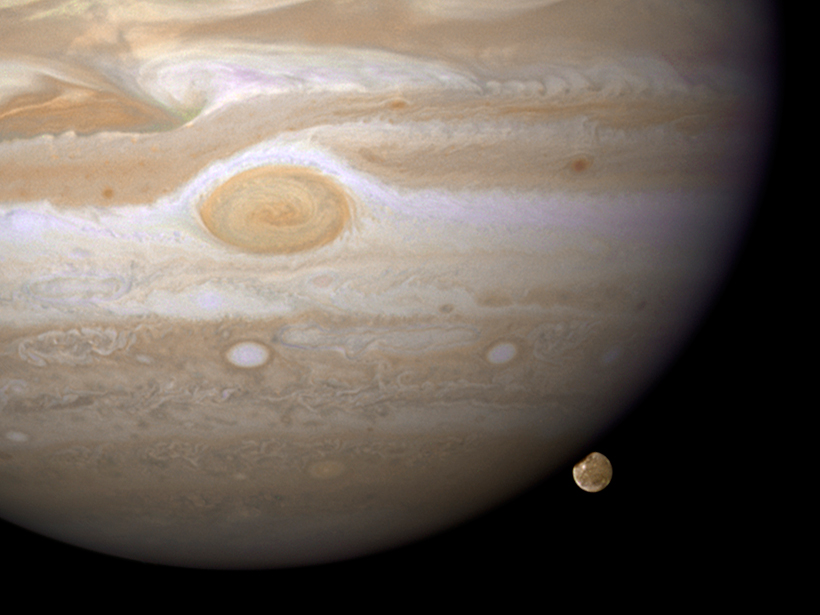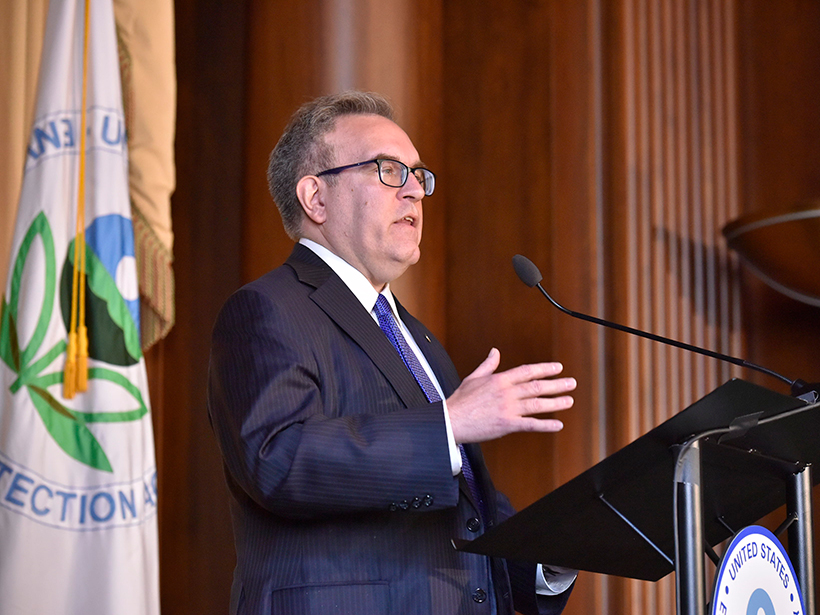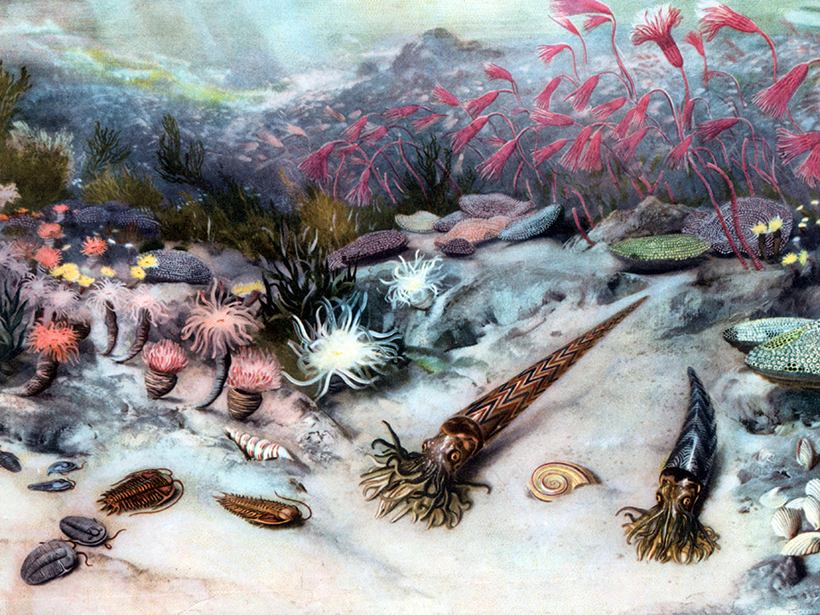The newly plotted moons of Jupiter include one “oddball” that orbits in the wrong direction and may be the remnant of a head-on collision.
News
A. F. “Fred” Spilhaus Jr. (1938–2018)
AGU’s former executive director turned his zeal for defending scientific integrity and for advancing Earth and space research into a 40-year career that enriched scientific pursuits around the world.
New EPA Head Says His Priorities Include Regulatory Relief
Andrew Wheeler brings a new tone and a vow of openness to the agency. However, he plans to pursue the same goal as his predecessor, which could weaken environmental regulations.
Tiny Algae May Have Prompted a Mass Extinction
Dead algae sinking to the ocean floor may have sequestered carbon 445 million years ago, triggering the glaciation that accompanied the Late Ordovician mass extinction.
Ursula B. Marvin (1921–2018)
This bold mineralogist and feminist bucked norms that deemed geology unsuited for women. She contributed to meteoritics, science history, and petrology, including the analysis of Apollo Moon rocks.
Environmentalists Are Glad Pruitt Is Out but Worry What’s Next
With Scott Pruitt’s resignation, EPA deputy administrator Andrew Wheeler, a former coal lobbyist, takes charge and is likely to continue the same deregulation and antienvironment policies.
Trump’s Ocean Policy Order Draws Ire from Conservation Groups
The executive order gives nods to science and the environment but focuses on resource development and national security.
Are We Prepared for an Asteroid Headed Straight to Earth?
A century after an asteroid crashed into Tunguska, Siberia, experts discuss the current lineup of missions to study asteroids and mitigate future disasters should another object from space hit Earth.
Congressman Renews Call for EPA Administrator to Resign
In an interview with Eos, Rep. Don Beyer, the second-highest-ranking Democrat on the House Science Committee, details why he calls Pruitt “an embarrassment” to the Trump administration.
New Version of Popular Climate Model Released
After spending months addressing a big glitch, researchers released the second version of the Community Earth System Model.









